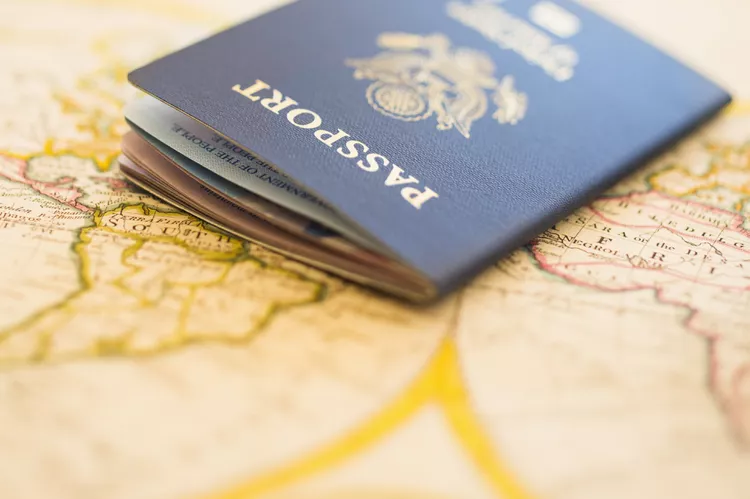How to Get Ready for Overseas Travel
Traveling to a foreign country can be a fascinating experience, but it can also be frustrating. Things you find easy to do at home, such as ordering meals and making telephone calls, can be quite difficult when you are using a different language, currency and, perhaps, another alphabet. Advance planning and a bit of research can help your trip go more smoothly. Our checklist will keep you organized as you prepare for your upcoming trip.
1. Passport
Apply for or renew your passport. Typical passport processing times in the US range from six to eight weeks, but it’s best to allow more time. If your passport will expire less than six months after your proposed departure date, renew it. Some countries will not allow you to enter unless your passport will be valid for at least six months past your entry date. When your passport arrives, sign it, fill out the emergency contact information and make two copies of the passport, one to take with you and one to leave with a family member or friend.
2. Visas

Find out whether you need a visa to visit your destination countries. You may need a valid passport (see above) to apply for a visa. Check the expiration date of your passport and allow plenty of time to complete the visa application process.
3. Travel Insurance

Determine whether your medical insurance policy will cover you while you are away. (Tip: In most situations, Medicare will only cover you within the United States.) If your coverage is limited, purchase a travel medical insurance policy. Consider other travel insurance options, too, including trip cancellation and trip delay insurance.
4. Immunizations

Do some research on required and recommended immunizations. Many countries require visitors to show proof of yellow fever vaccination for entry.
5. Travel Money

Decide which travel money you will use. Research this topic before you leave home. Consult people who have visited your destination countries about credit card and automated teller machine issues. Do not assume that you can use a credit card wherever you go. Plan to carry a backup credit card, a debit card and perhaps even some travelers’ checks. Familiarize yourself with exchange rates and consider bringing a currency converter of some kind. If possible, obtain a small amount of currency from your destination country before you leave home so that you can manage your transportation to your hotel or cruise ship with ease.
6. International Driving Permit

If you plan to drive while you are overseas, obtain an International Driving Permit. You may never need to show it, but many countries require you to carry it.
7. Power Converters / Plug Adapters

Find out whether you will need a power converter and/or plug adapters in your destination country. In Europe, for example, you will need a converter to “step down” the local 220-volt electrical current to 110 volts in order to use your hair dryer. Read the fine print on all of your chargers and devices. Some will automatically convert the power for you, while others will require a separate converter. (Tip: This is also a good time to ensure you have the chargers you will need for your telephone, camera, tablet and laptop computer.)
8. Maps / GPS Unit

Decide how you will navigate in your destination countries. Some travelers prefer paper maps, while others bring or rent GPS units. Travel guidebooks and smartphone apps are also useful. It may be expensive to rely on your cell phone alone to provide maps and travel tips. Paper road maps are handy if you plan to drive, while detailed city maps, available from tourist information offices, are your best bet for walking around.
9. Transportation Options

Know how you will get from the airport to your hotel, cruise ship pier, train station or rental car office. If you decide to drive, be sure you know where to park your car and find out whether your destination city has “limited traffic zones” that are restricted to residents only. Taking a taxi might be a good option for a shorter distance. Be aware of taxi scams if you decide to leave the driving to someone else.
10. Telecommunications

If you will need to contact family and friends during your trip, check into communications options before you leave home. You may be able to use Skype while you travel, which will probably be more cost-effective than using your cell phone. You will also need to find out whether your cell phone will work overseas. If a cell phone is your only option, be sure you understand how much it will cost to call home and use your data plan.
11. Useful Phrases

Learn a few words and phrases in the language of your destination country. “Please,” “Thank you,” “May I?,” “Where is (perhaps with ‘bathroom’),” “Help,” “Yes,” and “No” are the most important phrases to learn. If you have food allergies, you should also memorize the words for the foods you cannot eat, and consider bringing a phrasebook on your trip.
12. Etiquette, Customs and Clothing

Find out about the etiquette, customs, and clothing of your destination countries. Clothing that seems appropriate everywhere you have traveled might be completely inappropriate in certain places or in religious buildings. Learn the polite way to begin conversations and business transactions. Knowing how to offer proper greetings will ensure that you receive good service in hotels, shops, and restaurants.




